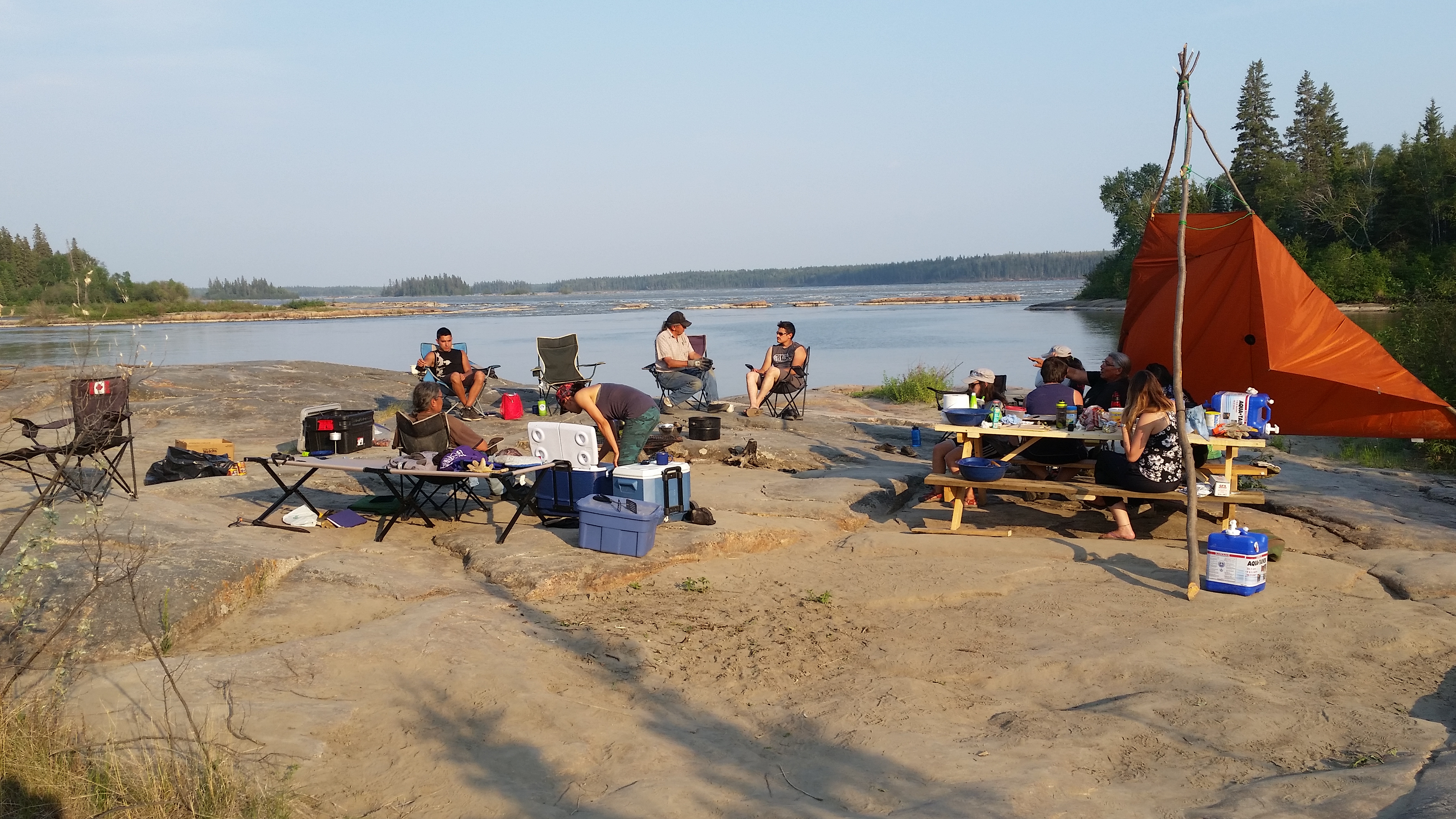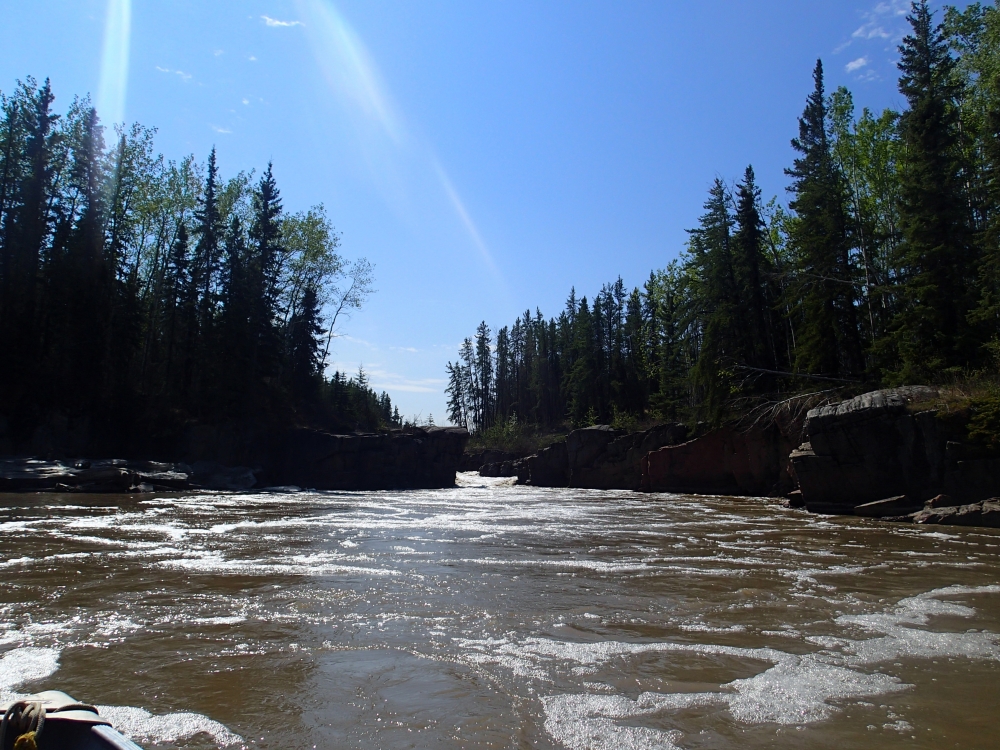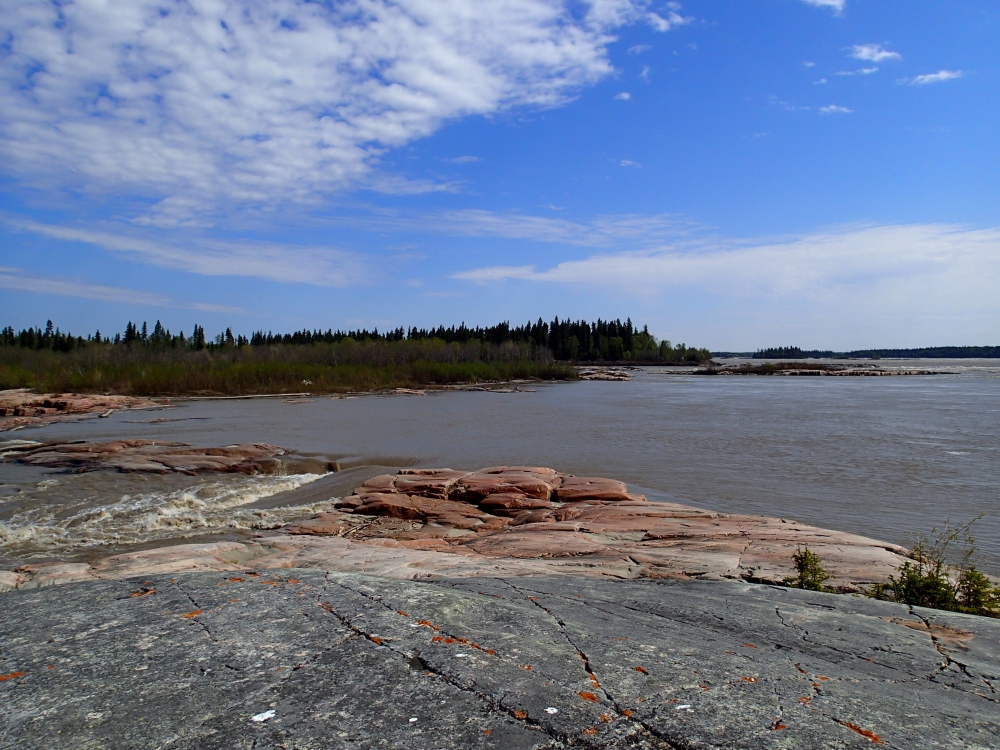Main Project Contact:
Sarah Rosolen
Project Start Date:
2015
Project End Date:
2015
Project Name:
Cassette Islands Climate Change Project

ARI Team:
Siku Allooloo
Sarah Rosolen
Matthew Dares
Overview:
The South Slave Research Centre is working in partnership with Smith’s Landing First Nation (SLFN) to conduct a community-based climate change study at a set of islands on the Slave River in an area known as the Cassette Rapids. The Cassette Islands Climate Change Project will take place throughout the summer of 2015 and will use Dene knowledge to study the impacts that climate change is having on local food security and health. The project will also bring together elders, youth and researchers in the process.
According to elders of SLFN, the Cassette Islands were an important site for harvesting many sources of foods and sustained people living in and around the community of Fitzgerald. However, in recent years many local people have noticed declining populations of plants and animals in the surrounding area, along with noticeable changes in seasonal patterns, environmental conditions, extreme weather fluctuations, and the appearance of new species.
The project will focus on documenting observations and oral histories using photos and videos to explore the extent of local climate change impacts. Elders, youth, and researchers will partake in observation and monitoring camps held on the Cassette Islands. While attending, Dene elders will teach youth how to observe the land, discuss possible explanations for patterns of change, and share some of the skills required to work and live on the land. Youth will also gain skills in environmental science monitoring, digital data collection, and videography while they prepare a short documentary about the project’s observations and accomplishments.

Objectives:
The short term objectives of this project are to:
1) Document and present and historical data on the local environment and wildlife;
2) Assess the impacts of climate change on our community's health and food security;
3) Support intergenerational knowledge sharing between elders and youth on the land;
4) Engage our community in the research;
5) Build traditional knowledge capacity in our community; and
6) Build applied technical capacity in our community.
The long-term objectives of this project are to:
1) Empower ourselves to continue monitoring our territory using the combined skills and resources of this project;
2) Promote use of traditional knowledge in decision making;
3) Provide recommendations from this vulnerability assessment for the development of a community-based adaptation plan to address climate change, health, and food security;
4) Equip the next generation of land-users, environmental observers and care-takers to maintain connections to the land and cultural ways of life.

Location:
Cassette Islands, South Slave Region, NWT
Methods:
The Cassette Islands Project is a community-based-participatory research (CBPR) project that will use a variety of traditional and scientific methods to address concerns identified by our community. The CBPR model emphasizes the importance of community involvement at all stages of research as well as the value of blending community skills with scientific research skills, thus making it an excellent methodology for our project.
Schedule:
Data collection will occur in two phases:
1. Identifying indicators: interviews and focus groups will be conducted with local land-users to identify indicators of concern regarding climate change, health and traditional food security.
2. Field camps: traditional observation, environmental monitoring and digital data collection will take place according to the indicators identified earlier in the study.
In addition to these two phases of data collection, there will be ongoing film and photo data collection throughout all project activities. Everyone involved in the project will have the opportunity to be a research participant as well, through interviews, photos and film data collection. These film and photo data will contribute to a documentary film and photo-point mapping to be used as community knowledge translation tools.
External Partners:
Smith's Landing First Nation
Health Canada
Slave River Coalition
Government of the Northwest Territories
